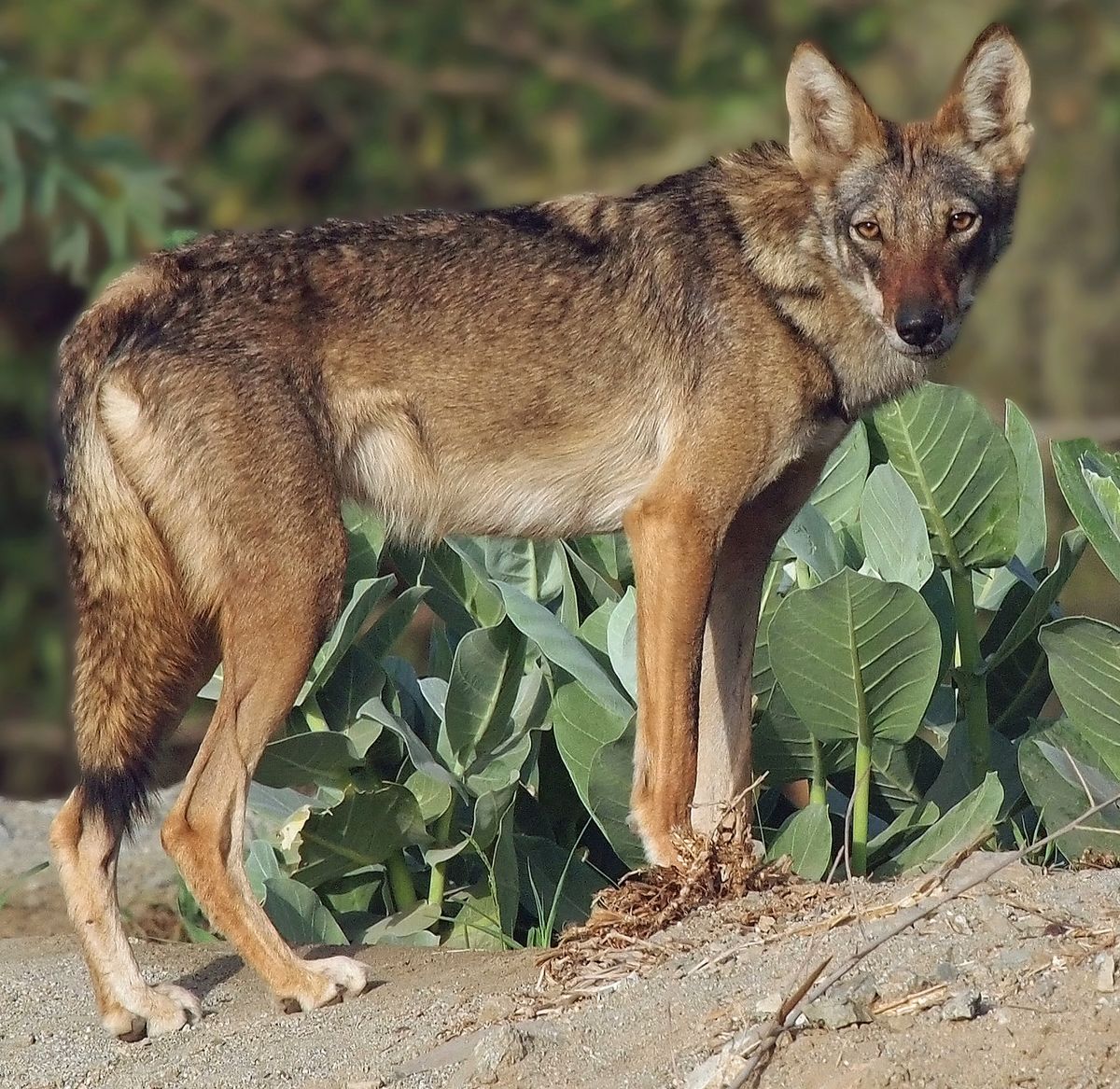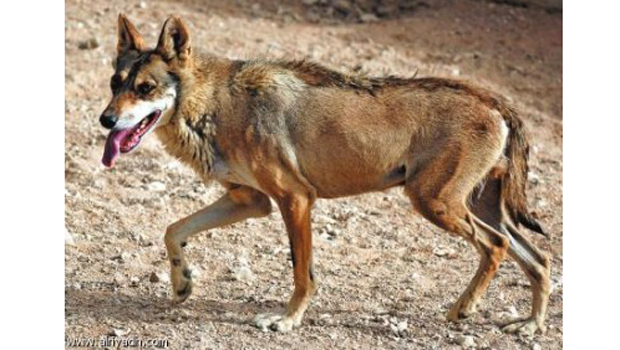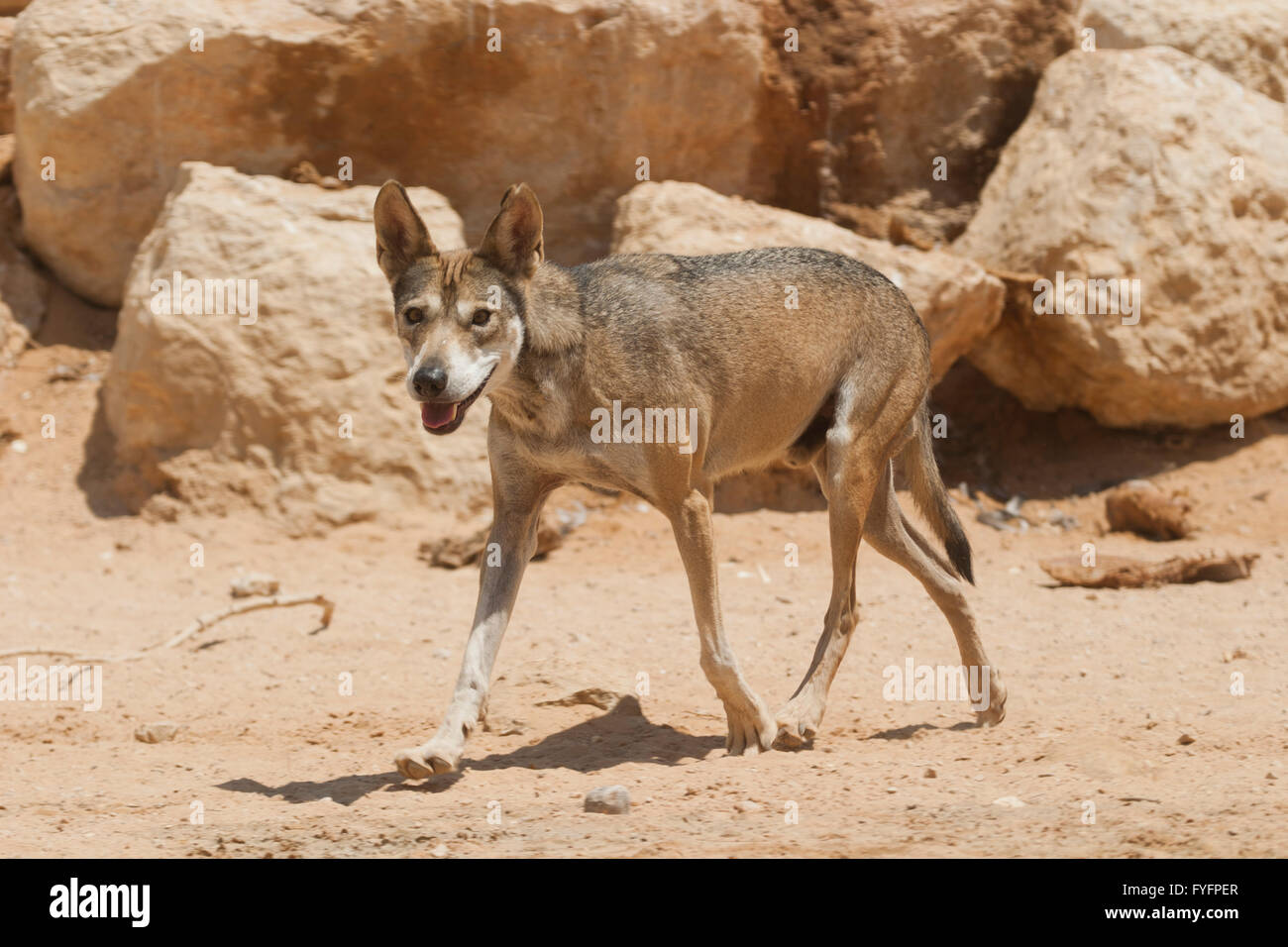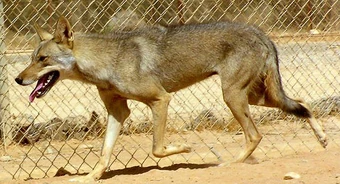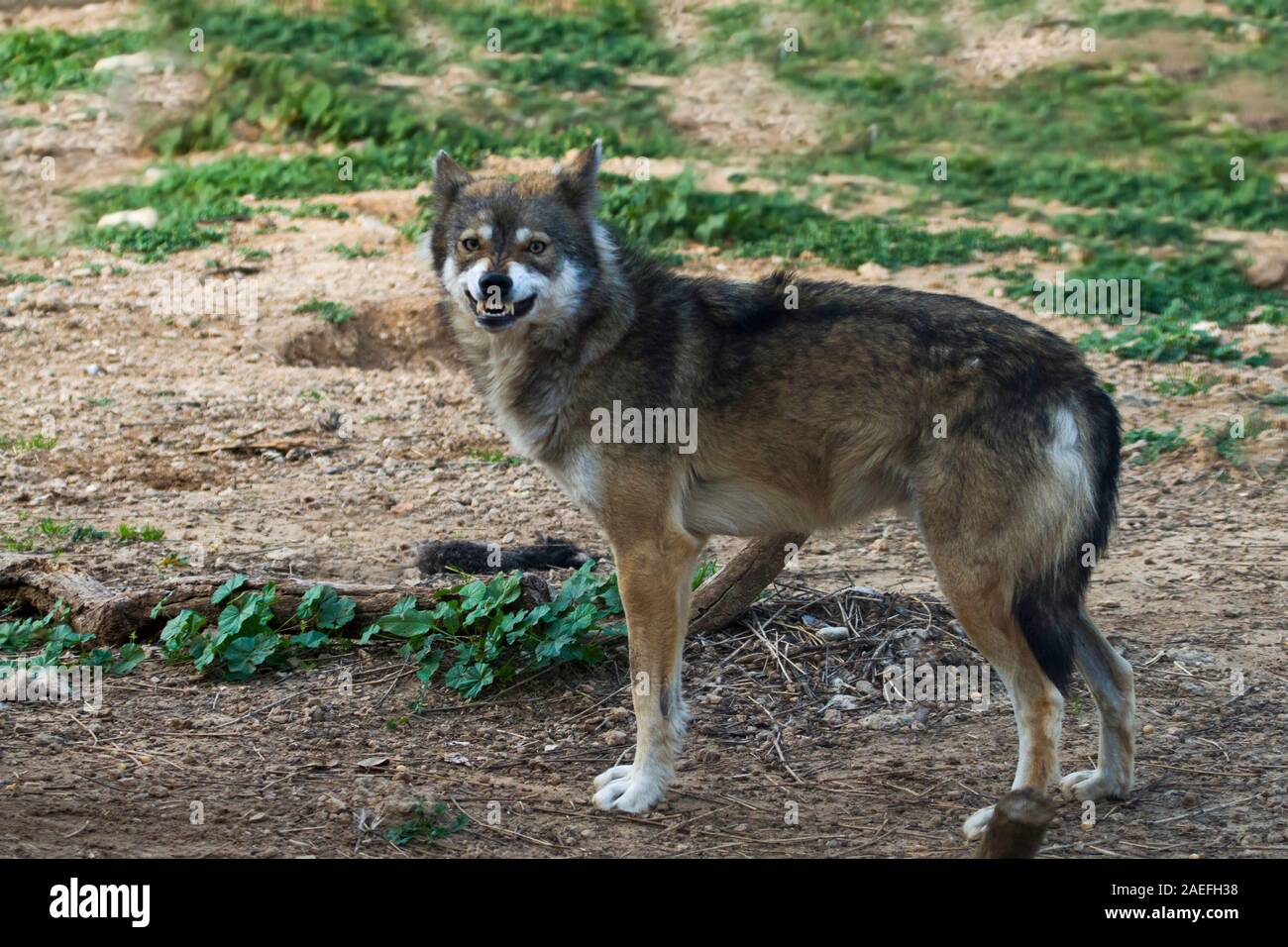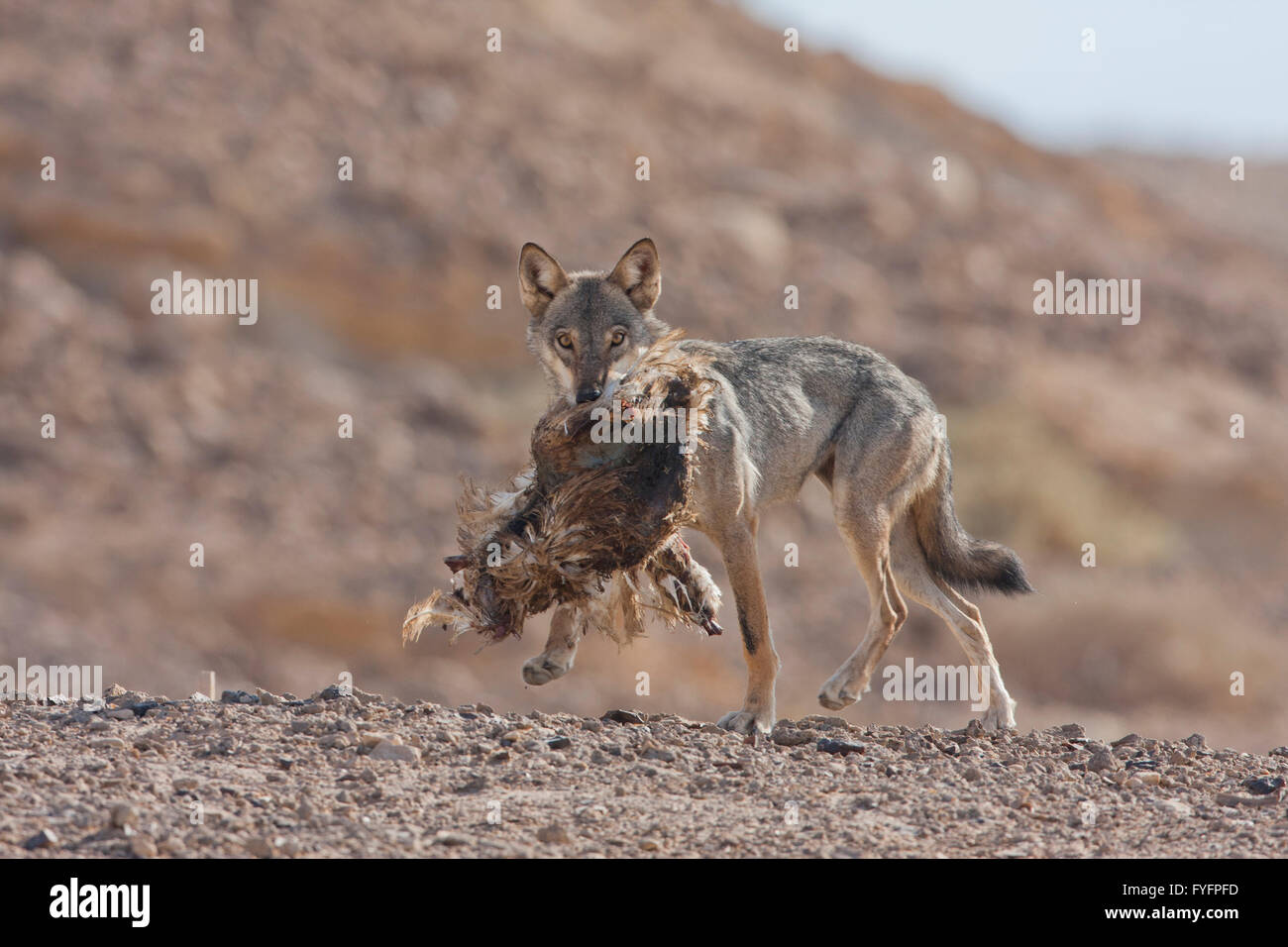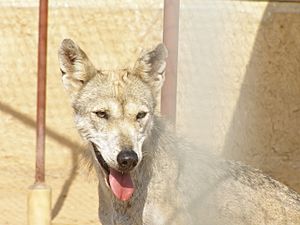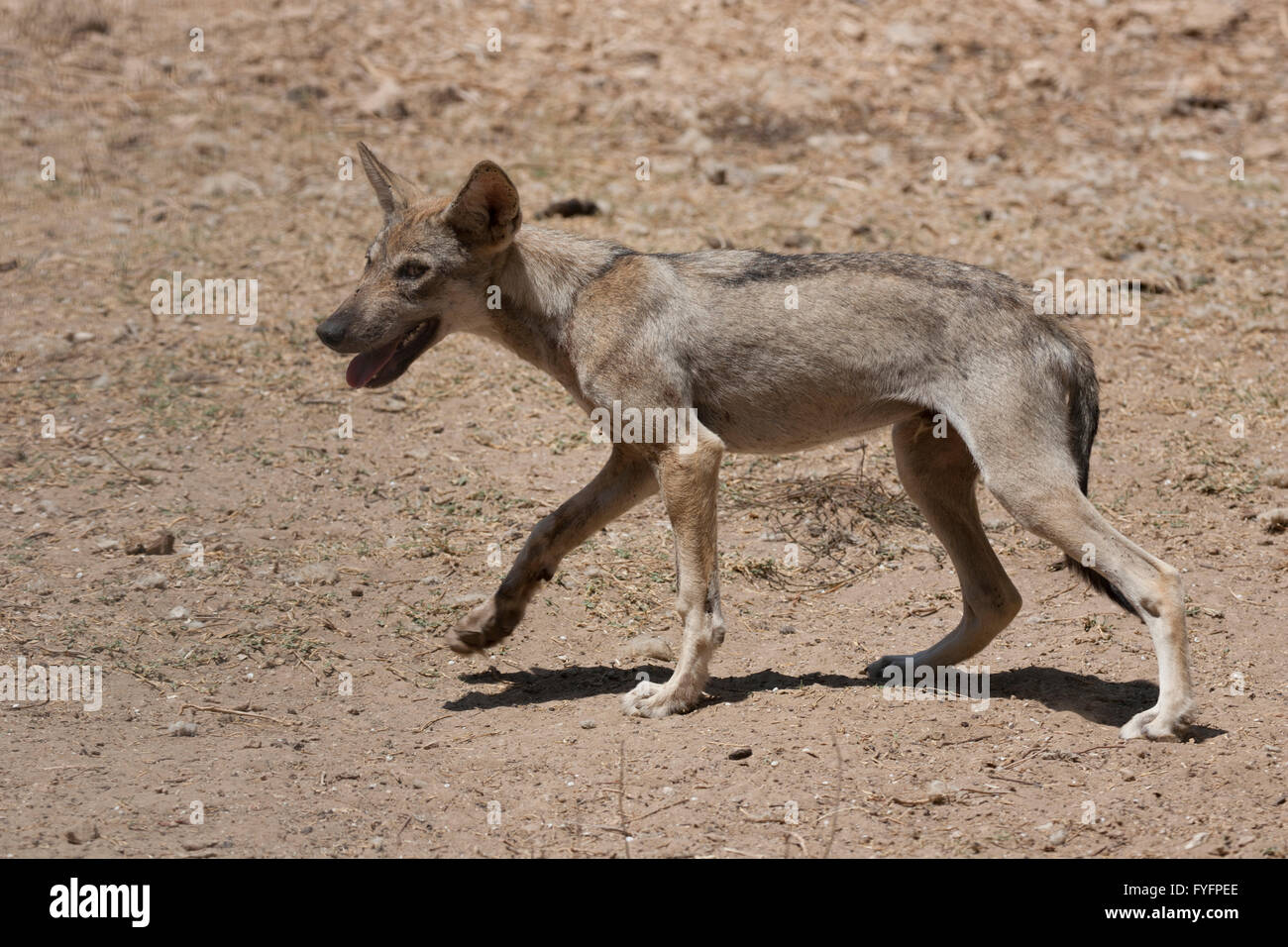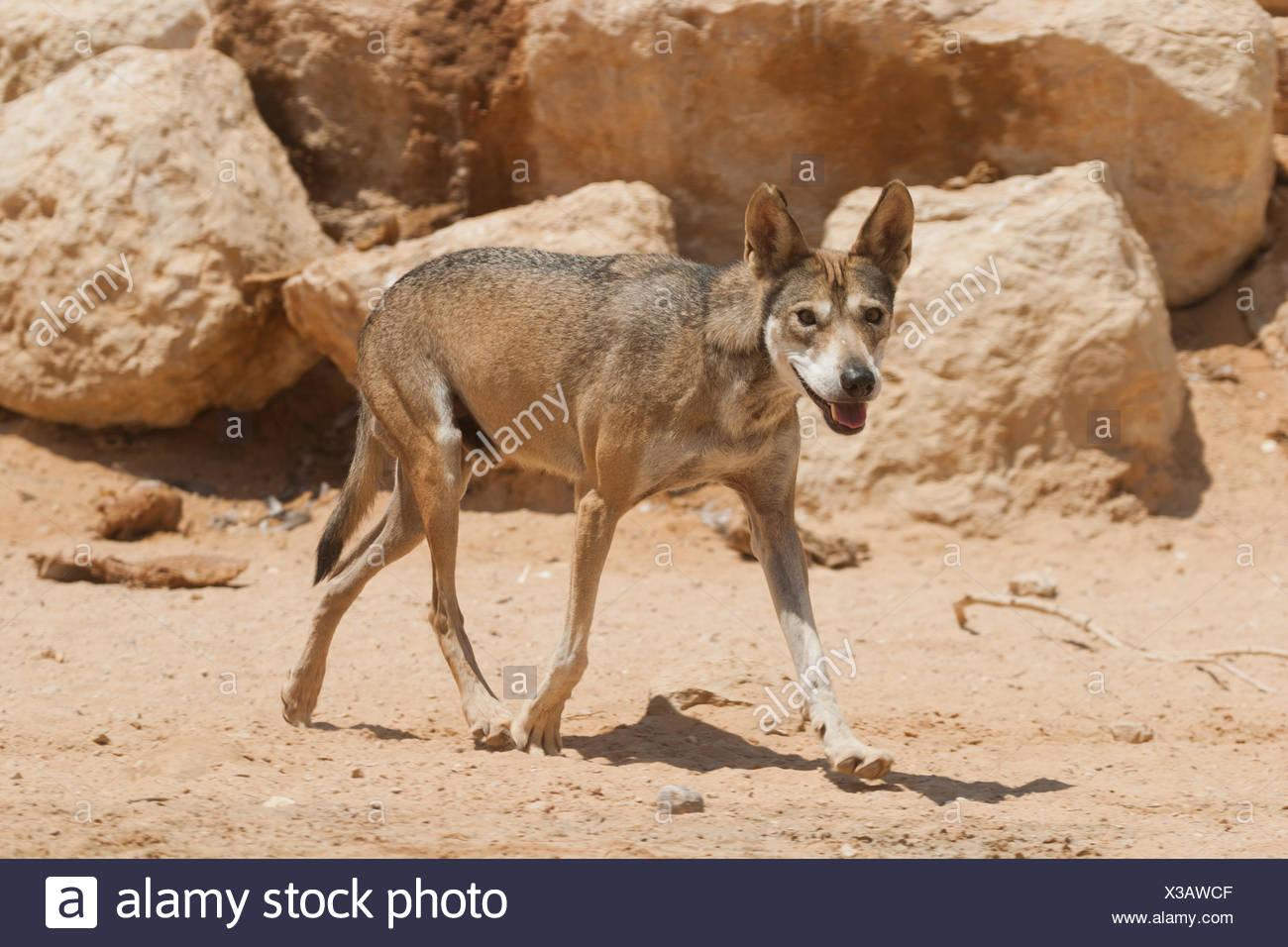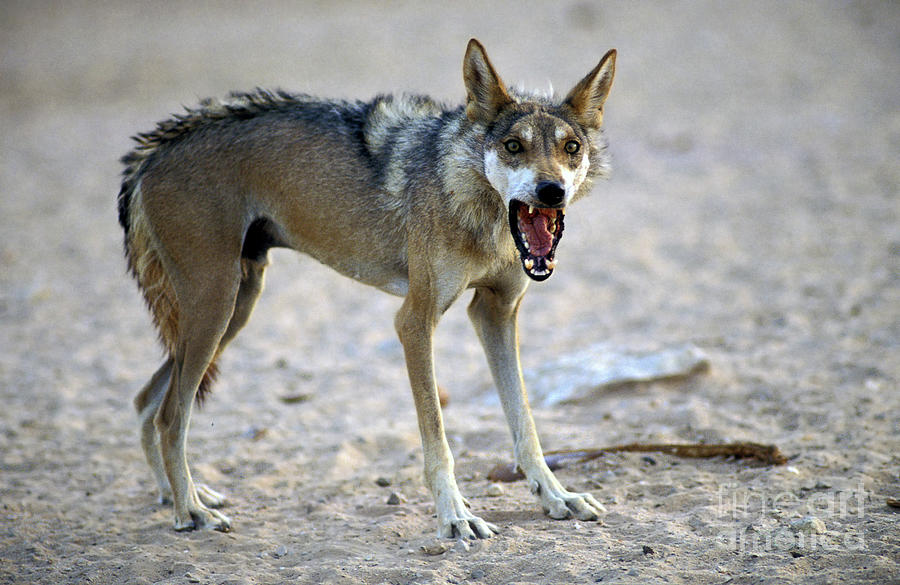Arabian Desert Wolf

It s hunting is banned in many countries in the gulf and that has led to an increase in its population.
Arabian desert wolf. Its prey is anything from small birds and rodents to larger animals such as gazelles and oryxes. These wolves don t generally live in large packs and prefer to hunt in pairs or small groups. The arabian wolf canis lupus arabs is a subspecies of gray wolf which lives on the arabian peninsula. The animals that live in the arabian desert are well adapted to live in extreme desert climate.
The arabian wolf is a desert adapted canid and although one of the smallest wolves is one of the largest canids in arabia. It is the smallest sized wolf known. A lone arabian wolf with its winter fur in the southern arava desert israel arabian wolves are mainly carnivorous but also omnivorous and in some areas largely dependent on human garbage and excess products. It is a desert adapted wolf that normally lives in small groups and is omnivorous eating carrion and garbage as well as small to medium sized prey.
Their coat hairs are thin short wiry and light in colour varying from light brown through to a greyish yellow with the stomach being paler or white. It is the smallest sized wolf known. Typically stands around 26 inches 66 cm shoulder height and weighs an average of 40 pounds 18 14 kg. Though it is a subspecies of the grey wolf a distinct feature of the arabian wolf is its fused paws.
The arabian desert is a vast stretch of arid landscape in western asia where it occupies most of the arabian peninsula encompassing an area of 2 330 000 square km. The arabian wolf is a small desert wolf that stands at an average of 66 centimeters shoulder height and weighs around 18 14 kilograms. The climate is mostly dry with some places receiving rainfall lower than 50 mm annually. Her first name is corinne.
The arabian wolf is small adapted to the desert environment. Arabian wolf this small desert adapted wolf is found in small pockets around the arabian peninsula.
